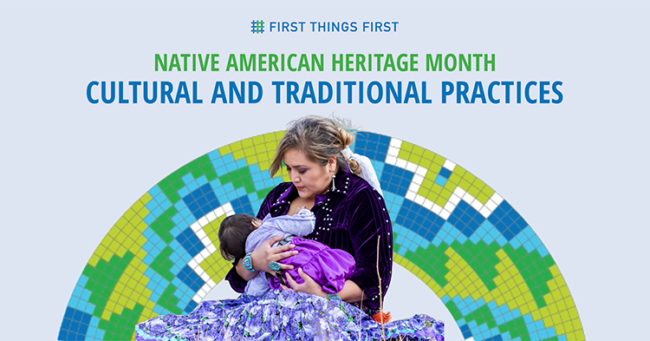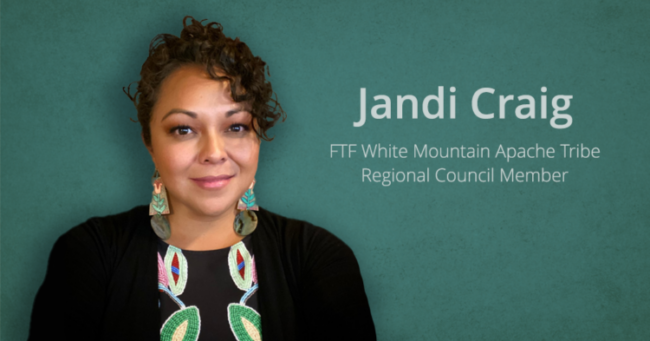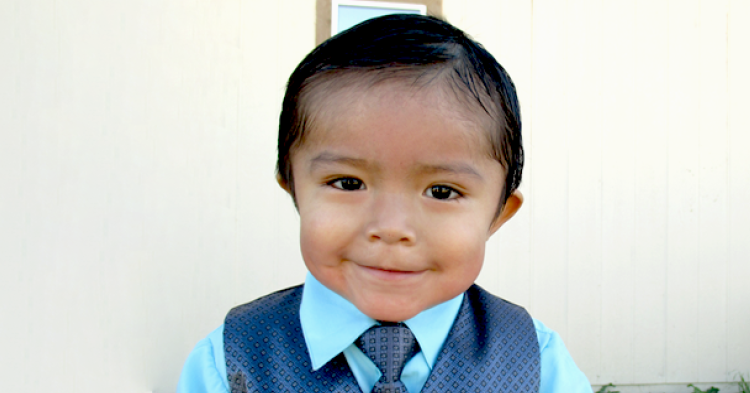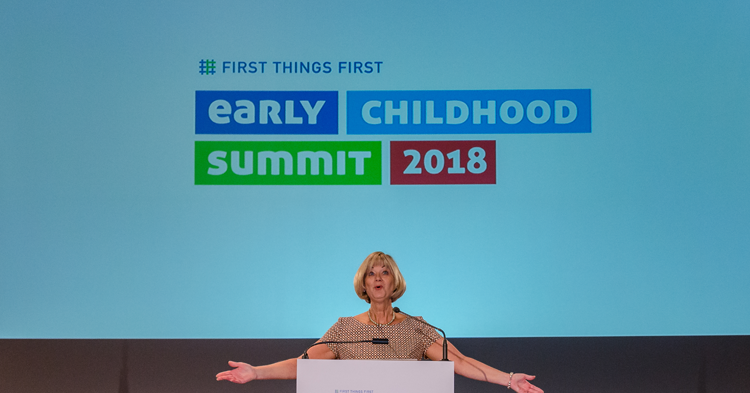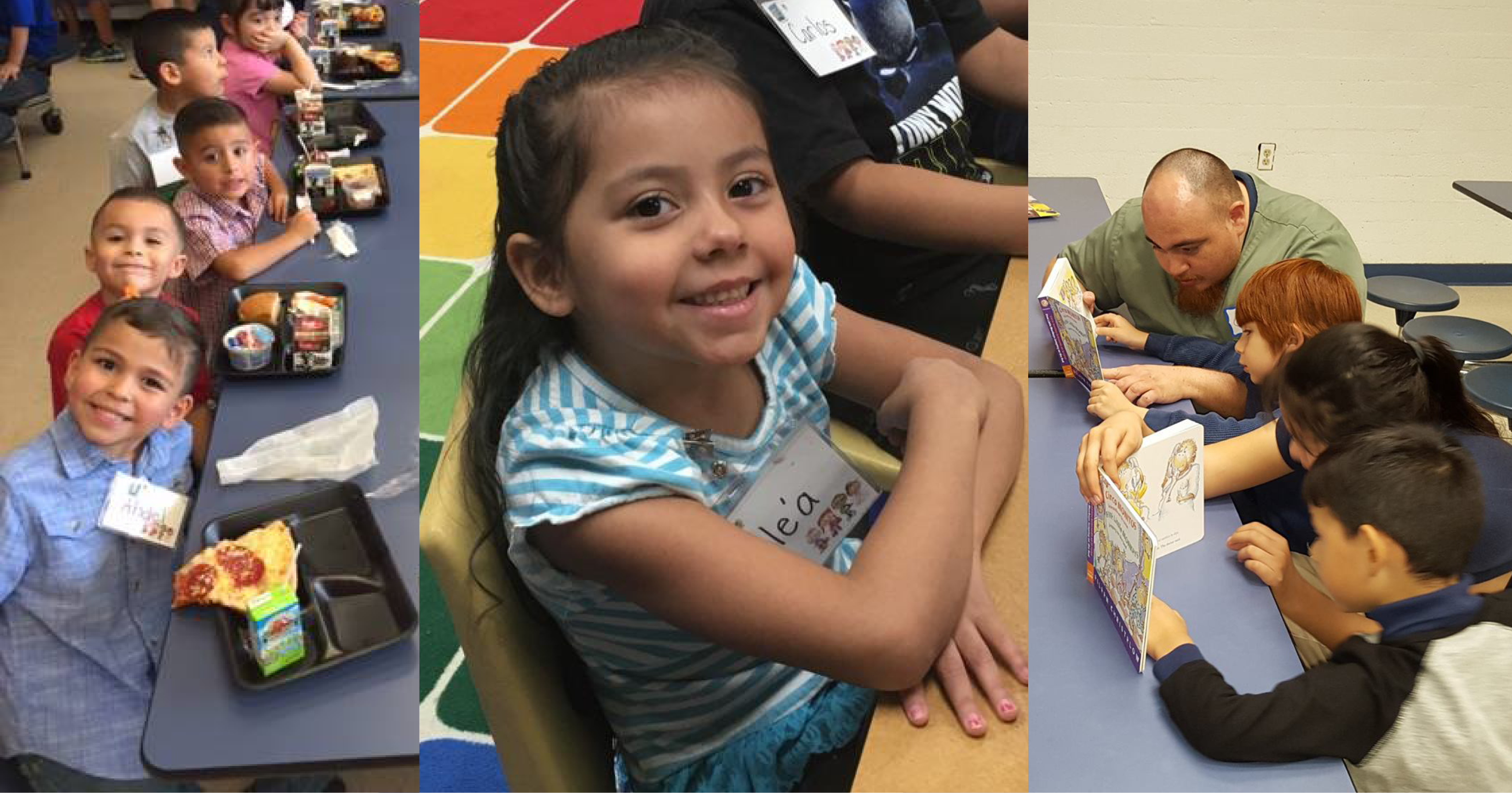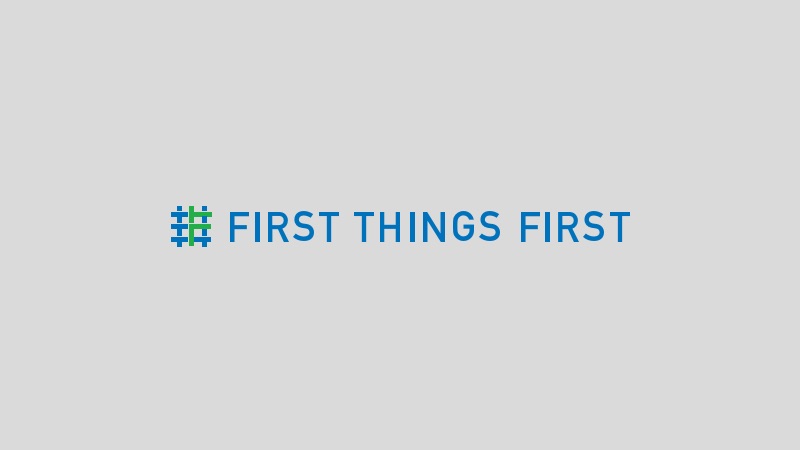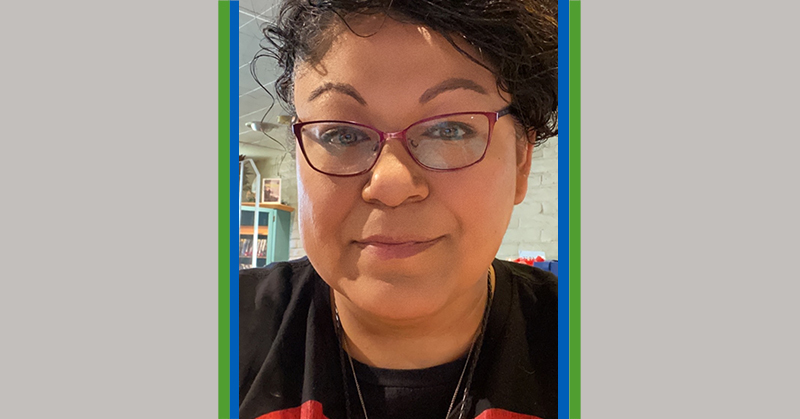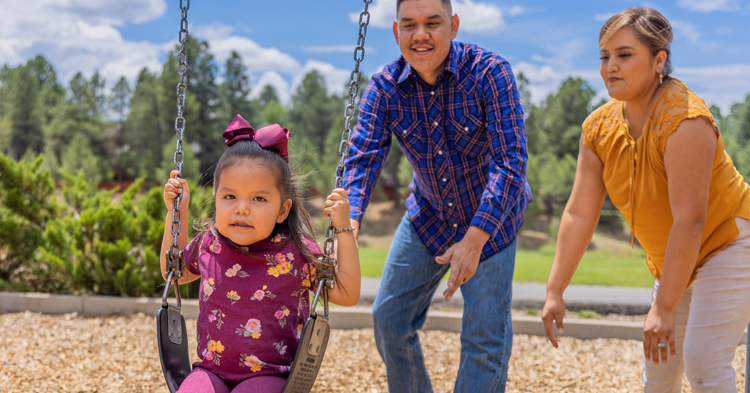
Before LaToya Beatty was hired as the First Things First San Carlos Apache Regional Director, she volunteered as an FTF regional council member.
She still remembers how impressed she was by the way Arizona’s early childhood agency was set up.
“When I became a regional director, I stayed close to the concept of how FTF is organized as an agency and the importance of local governance,” Beatty said. “I really liked that FTF was set up that way. I wanted to honor that in my own way as a director, also knowing that as an Apache woman, I wanted to make sure that we gave justice to it.”
Respect for tribal sovereignty
For First Things First, the work of expanding and supporting Arizona’s early childhood education system within tribal communities has been rooted in a respect for tribal sovereignty. This is demonstrated by a commitment to working in collaboration with tribes in Arizona to ensure that young children entering school in tribal communities are healthy and ready to succeed.
As FTF celebrates Native American Heritage Month in November, FTF will have free panel sessions throughout the month that explore cultural humility, which speaks to self-reflection and understanding your interactions with diverse people. Other sessions include: justice system issues and how to incorporate an indigenous lens when working with tribal communities.
Native American Heritage Month is an intentional, dedicated time each year where tribute is paid to the rich ancestry, traditions and contributions of Native Americans.
FTF Tribal Affairs team
From the planning stages of the new agency, which was established in 2006 through a state voter initiative, the agency has included a Tribal Affairs unit. Today, the FTF Tribal Affairs team consists of FTF Senior Director for Tribal Affairs Candida Hunter, FTF Tribal Liaison Kalvina Belin and Administration Assistant Samantha Taylor.
“Candida and Kalvina deserve more than a round of applause for the work that they do,” said FTF Tohono O’odham Nation Regional Director Lisette DeMars. “I could not be doing this job without their support, their guidance and honest feedback that they provide.”
For DeMars, not being a member of the O’odham community had the potential of creating challenges to her work, but instead, when she started, she was met by generous FTF regional council members with a willingness to share information about the history and culture of their people.
“They’re the real leaders in the different components of the community,” DeMars said. “I appreciate their patience and understanding. They have helped me feel empowered. I knew it would take me a few years in this role, but talking and learning from the community has helped me become a better listener and learn how the different systems in the community interact.”
FTF’s infrastructure was set up to support the range of different needs across Arizona.
The agency is committed to operating within a government-to-government relationship with federally recognized tribes in Arizona. In order to achieve this goal, it is essential that FTF and tribes engage in open, continuous and meaningful consultation on a government-to-government basis.
“The power of First Things First is this grassroots piece of the work,” DeMars said. “It’s democracy with a small d. The flexibility that is allowed so that this government agency can best service the specificity of these regions, while still honoring their uniqueness and respecting their sovereignty is one of the most important parts of FTF. We work with 22 tribes. That is not typical.”
For example, the FTF Tohono O’odham Nation regional council members recently wanted to explore in depth the region’s needs and assets report, along with the recognition of the undercount of the 2020 Census.
“What the regional council wanted to know is what impact is COVID having on the programs that support children birth to age 5,” DeMars said.
The tribe allowed for a supplemental report to be collected with interviews with many of the agencies doing work on the Nation, asking what did things look like before the pandemic and what do they look like now?
“They received real, in-time information that was so relevant as they planned for the next strategic plan,” DeMars said. “They now knew how materials and services were getting to families post-pandemic. The undercount is still there, but they have a better understanding of how partners could support families.”
This type of partnership between tribes in Arizona is sometimes difficult for a state agency. But FTF recognizes that tribes must have a strong voice in shaping the policies and programming that affect their communities. FTF believes that improving communication and partnerships with tribes in Arizona is essential to providing all of Arizona’s children a solid start so they can learn, grow and succeed.
Government-to-government consultation
A major part of that communication happens through tribal consultation, where FTF meets with tribal leaders to engage in consultation on a government-to-government basis.
The concept of tribal consultation has been around for some time, used across the country by universities, federal agencies and state agencies, said Jacob Moore, who is vice president and special advisor to the President for American Indian Affairs at Arizona State University. He is responsible for the intergovernmental affairs between ASU and tribal nations and communities.
“If you’re responsible for putting together an engagement, there’s a balance between having too much information where you pretty much have it figured out and getting accused of ‘You already did it so why are you asking me?’ And the other end of the spectrum where you’re not giving us enough information for us to know what to do with it,” Moore said.
“What Candida and FTF is able to do is calibrate those engagements in a way that there’s sufficient information and she has questions prepared, but still gives the (tribal) leadership the opportunity to understand the current status so that during engagement they’re not unprepared of what’s being asked of them. That’s a rare art. It’s as much art as it is science and I see Candida do it well.”
Another part of the work that the FTF Tribal Affairs team does is to support FTF’s regional directors. That assistance is key, Beatty said.
That state level team “is important because they serve as a sounding board, guidance, a legal perspective and encourage conversations that are needed,” she said.
“FTF as a state agency has always been respectful and an integral part of getting this work done. It’s an agency that understands its role and listens to the voice of all the tribes.”


